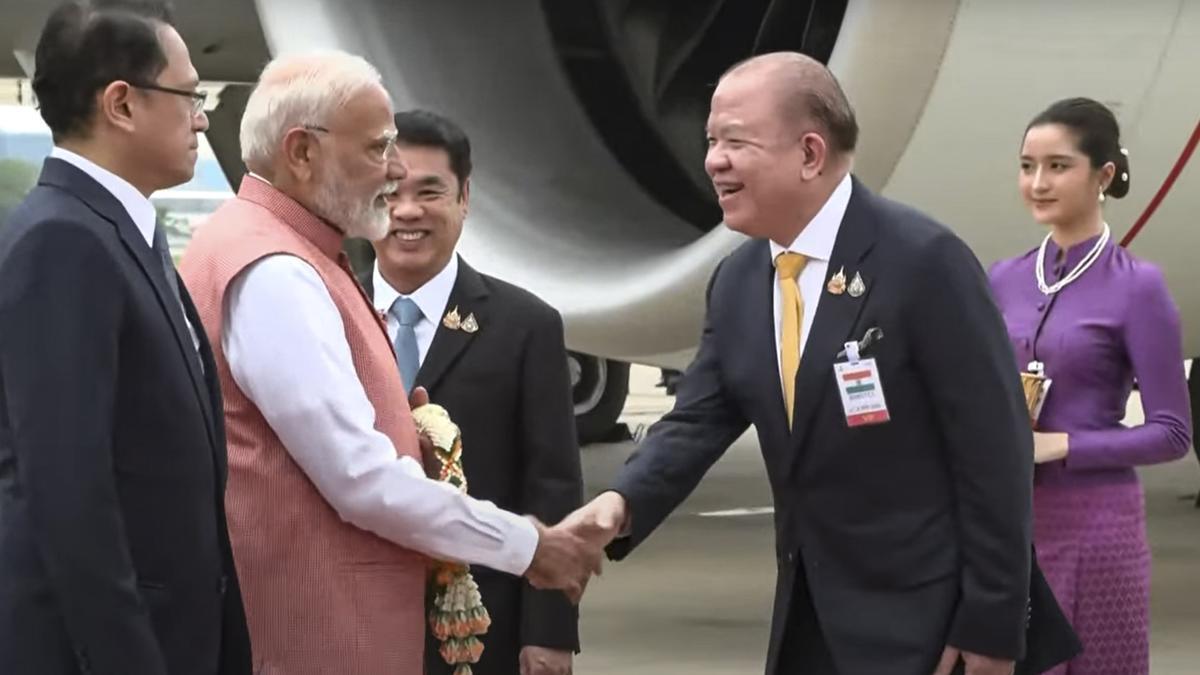India and Thailand today decided to elevate their relations to the level of a strategic partnership with Prime Minister Narendra Modi asserting that both the countries support a free, open, inclusive and rules-based order in Indo-Pacific, and believe in a policy of development, not expansionism.
Modi made the remarks at a joint press event with his Thai counterpart Paetongtarn Shinawatra after holding delegation-level talks during which they held extensive discussions on various areas of bilateral cooperation.
“We have emphasized cooperation in the fields of tourism, culture, and education between India’s Northeastern States and Thailand. We discussed enhancing mutual trade, investment, and exchanges between businesses,” Modi said about his talks with Shinawatra.
Agreements have also been made for cooperation in MSME, handloom and handicraft, he noted.
India and Thailand signed a Joint Declaration on the establishment of a Strategic Partnership and five memoranda of understanding in sectors ranging from digital technologies to culture.
National Security Adviser Ajit Doval and External Affairs Minister S Jaishankar were also present at the bilateral talks where the agencies of the two countries also agreed to collaborate closely to combat human trafficking and illegal migration.
Thailand had recently helped India in the repatriation of 549 Indian nationals who were trapped in a fake jobs racket in Myanmar.
“We thanked the Government of Thailand for their cooperation in facilitating the return of Indian victims of cybercrime. We have agreed that our agencies will collaborate closely to combat human trafficking and illegal migration,” the Prime Minister said.
Modi asserted that Thailand holds a special place in India’s ‘Act East’ Policy and the Indo-Pacific vision.
“Today, we have decided to elevate our relations to the level of a Strategic Partnership. Discussions were also held on establishing a Strategic Dialogue’ between security agencies,” Modi said.
He said India fully supports ASEAN unity and ASEAN Centrality.
“In the Indo-Pacific, we both support a free, open, inclusive, and rules-based order. We believe in the policy of vikaasvaad, not vistaarvaad (development-ism, not expansionism),” Modi said, in an apparent reference to China, which has been flexing its muscles in the strategically vital region and is also engaged in hotly contested territorial disputes in both the South China Sea (SCS) and the East China Sea (ECS).
“I am grateful to the Thai Government for issuing a special postage stamp based on the 18th-century ‘Ramayana’ mural paintings on the occasion of my visit,” Modi said.
Modi said Prime Minister Shinawatra presented him with “The World Tipitaka: Sajjhaya Phonetic Edition”.
The Tipitaka (in Pali) or Tripitaka (in Sanskrit) is a revered compilation of Lord Buddha’s teachings, consisting of 108 volumes and is regarded as the principal Buddhist scripture.
“On behalf of the Buddha-land India, I accepted it with folded hands,” he added.



